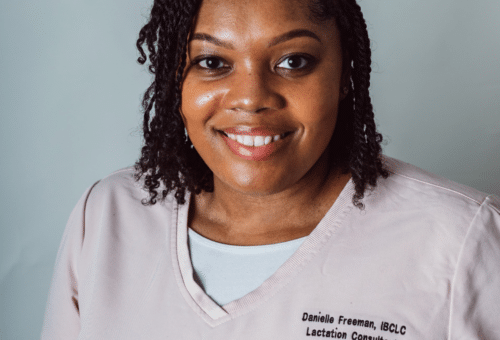
This article on community, medical, and staff education is part of an occasional series on the ways we fulfill our mission.
Ongoing community, medical, and milk bank staff education are integral to our work. We achieve this part of our mission in multiple ways, and it is both a serious and a fun part of our work.
Community Education
Our expertise brings frequent phone and email inquiries from all over the country (and beyond) wanting to know: how to travel with, store and ship milk when moms are on business trips or moving across many miles; how to save their stash of frozen milk in a blackout; risks and benefits of using milk from another mom, or for an adult; and much more. These questions also become blogs and posts for general knowledge. So . . . if you have a question, send it our way for you and others to learn.
We have many ways to reach the communities we serve: Facebook, Instagram, Twitter, Pinterest, LinkedIn, our website, our email newsletter. The milk bank hosts a private Facebook group for bereaved parents to learn and support one another; a group called Banco de leche maternal that disseminates clear, accurate information about milk donation in Spanish; and a group called Milk Bank Ambassadors, where we encourage group members to share milk bank news within their networks. Media from all over our region–newspapers, TV and radio stations, podcasts, bloggers–call us frequently asking for information on a wide range of topics related to breastfeeding, donor milk, ethics, milk sharing, and more.
We participate in our region’s state breastfeeding coalitions, visit WIC offices, and exhibit and speak at a wide range of conferences and meetings. Our presence and information ripple widely to parents, grandparents, friends, families, and professionals.
Medical Education
Medical education is crucial to our mission for two reasons. First, when providers know about donor milk, they promote breastfeeding, use of donor milk, and milk donation. In addition, keeping health care providers in hospitals and community practice informed of the latest research helps them treat their fragile patients more effectively, saving lives and promoting short- and long-term health.
Mothers’ Milk Bank Northeast hosts two private email lists—for level 1-2 nurseries and for NICUs—creating a forum for participants to ask questions, share information, and learn from one another about day-to-day challenges, successes, policies, procedures, and best practices. They are also places to share new research and clarify misconceptions about donor milk, who can donate and receive milk, safety practices, and more.
Several times a year we enjoy hosting open houses for perinatal professionals and meetings of breastfeeding organizations. This gives our colleagues a chance to tour the milk bank, see the processing lab in action, ask questions of our staff, and bring back information to their patients, clients, and organizations.
We also spend much time on the road, visiting hospitals, conferences, and community organizations, and opening milk depots and dispensaries. These trips are a delightful way to connect in person with many of the people we mostly work with remotely.
We are in the process of preparing a series of webinars for hospitals to train their NICU and nursery staffs in use of donor milk and how to talk with patients about it.
Staff Education
We are blessed with a dedicated, smart, and curious staff. Ongoing staff training and education are a core part of our competency and expertise.
Twice a year we hold meetings of our Medical and Research Advisory Boards; members of the staff and Board of Directors value the opportunity to attend and learn about the latest research on donor milk.
Staff members receive ongoing training in their areas of work—for example, HIPAA regulations; food preparation safety; human milk, medications and herbs; and current topics in fundraising and communications.
In the coming year, we will institute regular staff in-service education on a wide range of topics, including how to read a research article critically, social media analytics, what a milk tech does, and applying Quality Improvement techniques to our work.
Our accrediting organization, the Human Milk Banking Association of North America, is also an important source of ongoing staff education. Visits from and to other milk banks always bring new insights and knowledge. Just as our email lists provide a forum for hospital providers to share information and best practices, HMBANA has a number of lists and online groups for colleagues in donor screening, outreach, and operations. In addition, HMBANA holds a biannual symposium for milk bank staffers, and in alternate years, an international conference for milk bankers, researchers, and practitioners from all over the world. At both meetings we have the opportunity to learn the newest research, share ideas, network, and laugh together. Our staff is well represented at both these events.
Not a day goes by that I don’t learn (and teach others) something new. It’s one of the best parts of my job!
Image by PublicDomainPictures from Pixabay








